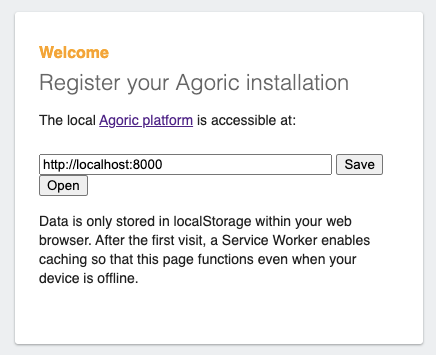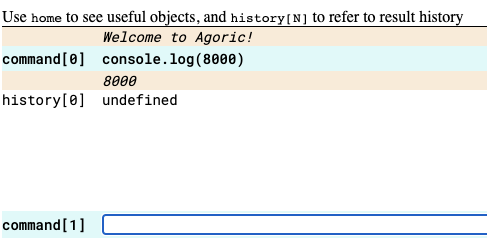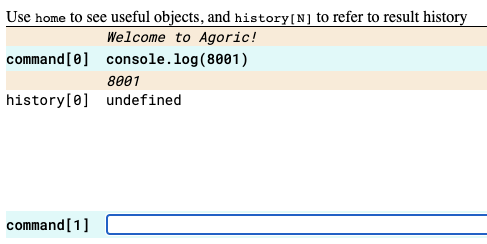# Starting Multiuser Dapps
When developing a Dapp, you may need to test how it behaves with multiple users before deploying it publicly. These users could have different roles, such as the contract deployer, an auctioneer, a bidder, a buyer, a seller, etc. The Agoric CLI implements a local-chain-multiuser scenario for developing and testing multiuser Dapps.
# Usage
Develop your Dapp as described in the Agoric Getting Started Guide.
After using agoric start to test with the simulated chain, stop the simulated
chain with Control-C.
You must first compile the Golang dependencies in the Agoric SDK by running
cd agoric-sdk/packages/cosmic-swingset && make
Check that the ag-cosmos-helper binary is in your $PATH and works by running the following. If not, you
need to add it to your $PATH:
# Display the directory that should be in your $PATH.
echo ${GOBIN-${GOPATH-$HOME/go}/bin}
# Attempt to run a binary that was installed there.
ag-cosmos-helper version --long
Then start a real local chain by running the following command. If you want to
start the Agoric process afresh, add the --reset option at the end.
agoric start local-chain
There won’t be any running clients yet, but the chain will start and be fully functional.
If you’re satisfied with the restart and want to run the chain in the background, you must know how to manage background
processes on your system. For example, Unix-like systems can use the following to log to chain.log and start in the background:
agoric start local-chain >& chain.log &
To start a local solo machine connected to the above local chain (your API ag-solo), run the following.
Note this should either give an error or take a long time (i.e. over a minute) during which your
local chain should be logging something like validTxs=1. There are over 50 round trips (at 2 seconds apiece)
before the local ag-solo is ready to use.
agoric start local-solo 8000
This starts a solo machine listening for HTTP on TCP port 8000.
To start other local ag-solos, use a unique port number for each one, such as 8001 or 8002 with:
agoric start local-solo <PORT-NUMBER>
For each new local ag-solo, you need to either:
- Open the wallet corresponding to each local-solo port number by running:
agoric open --hostport=localhost:<local-solo-portnumber>
- Or open the wallet, get its URL displayed, and then copy/paste the URL into the browser you want to
view the wallet in:
agoric open --no-browser --hostport=localhost:<local-solo-portnumber>
Test that each of your ag-solos is running and has a wallet by connecting to http://localhost:<PORT-NUMBER>/ for each port you used.
Run your contract and API deployment scripts against the API ag-solo with this agoric deploy command. Note that port 8000 is the default
for agoric deploy operations. To deploy to an ag-solo running on a different port, use agoric deploy --hostport=127.0.0.1:<PORT-NUMBER>
agoric deploy <PATH-TO-DEPLOY.JS>
To use your Dapp UI with different clients, you’ll need to connect to https://local.agoric.com in different browsers (or different profiles of the same browser). Then fill out the localhost address of the ag-solo that you want to use with that browser. This connects the processes in the browsers to their own wallets so they do not share per-client data such as cookies, storage, etc. Test your UI in each browser!
# Example
This section shows how you do the above steps.
Start the local chain and ag-solos
# Build the Golang dependencies.
(cd agoric-sdk/packages/cosmic-swingset && make)
# Check that ag-cosmos-helper binary is in your $PATH and working
ag-cosmos-helper version --long
# Initialize a Dapp directory.
agoric init foo
# Change to the Dapp directory.
cd foo
# Install NPM dependencies.
agoric install
# Start the local chain, logging to chain.log.
agoric start local-chain >& chain.log &
# Start a local API ag-solo (takes over a minute to finish)
agoric start local-solo 8000 >& solo-8000.log &
# Open the associated wallet
agoric open --hostport=localhost:8000
# Start a second ag-solo.
agoric start local-solo 8001 >& solo-8001.log &
# Open the second associated wallet
agoric open --hostport=localhost:8001
# Repeat for any other ag-solos you wish to start (8002, 8003, etc)
Configure the first client browser
Open a browser (or a new profile), and navigate to https://local.agoric.com/

Keep the recommended address (http://localhost:8000), click Open, and verify that it opens a wallet and
REPL (Read-Eval-Print-Loop).
In the REPL, type console.log(8000), hit Enter, and see the
command and output in the REPL history.

# Configure an additional client browser
Open a different browser. Not just another tab or window, but a completely different browser or browser profile that doesn’t share cookies with any other ag-solo’s browser. For example, if you had an open Chrome window, create a new Chrome profile, or open a Firefox or Safari window.
Navigate to https://local.agoric.com/ and,
in the resulting page, set the address to http://localhost:8001
Click Save. Then click Open and verify that it opens a wallet page (but note that you won't have access yet).
Type console.log(8001)
in the REPL, hit Enter, and see the console.log command and output in the REPL's history.

You can repeat this section for as many other ports as you ran ag-solos for.
# Test the UI
# Deploy the contract and API service.
agoric deploy contract/deploy.js api/deploy.js
# Start the UI
(cd ui && yarn start)
Then navigate to http://localhost:3000 in each browser/profile for which you want to use the UI.
When the UI opens your wallet, the browser should navigate to the same URL you entered in that browser
or profile’s https://local.agoric.com page.
